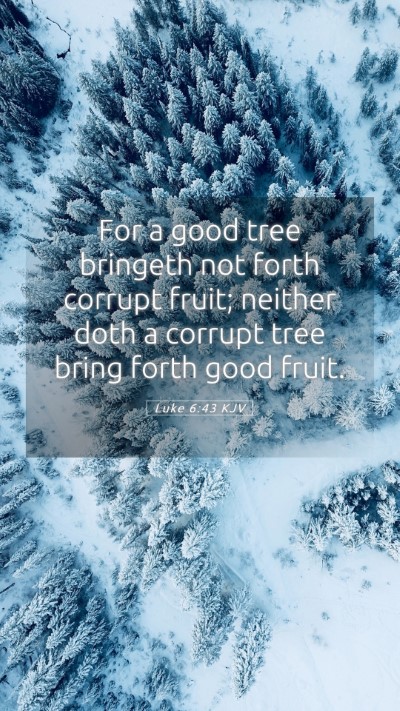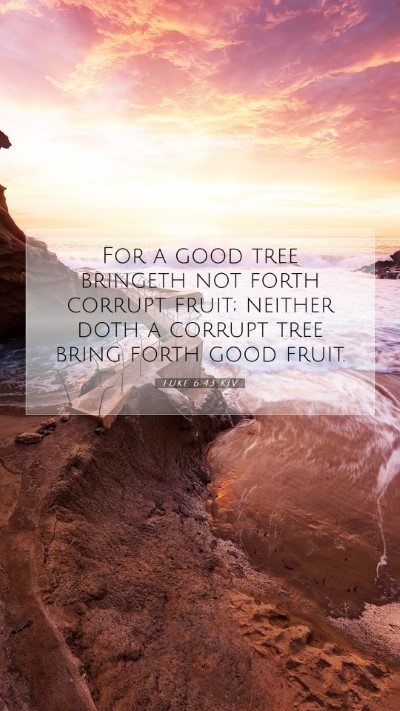Understanding Luke 6:43: A Comprehensive Bible Verse Commentary
Luke 6:43 states, "For a good tree bringeth not forth corrupt fruit; neither doth a corrupt tree bring forth good fruit." This verse emphasizes the intrinsic connection between a person's nature and their actions. The good or bad outcome is directly related to the quality of the tree, symbolizing a person's character.
Meaning of the Verse
The metaphor of the tree and fruit is extensively employed throughout scripture to draw parallels between internal character and external behavior. Fruit represents the tangible results of a person's life, and examining such fruit can reveal one's true nature.
Commentary Insights
-
Matthew Henry's Commentary:
Henry explains that the quality of the tree (the individual) determines the nature of the fruit (their works). If someone consistently produces bad fruit, it's indicative of a corrupt nature. Conversely, good actions stem from a righteous heart.
-
Albert Barnes' Notes:
Barnes elaborates on the importance of examining one's own life and the lives of those we follow. He warns against being deceived by appearances, urging that true character can be discerned through the consistency of one's actions over time.
-
Adam Clarke's Commentary:
Clarke interprets this verse in the context of Jesus’ teachings, suggesting that while external behavior may be seen, it is the internal disposition that ultimately matters. Clarke highlights that the correlation is foundational for understanding biblical morality—what someone is at their core shapes their actions.
Scriptural Context
In the passage of Luke 6, Jesus is delivering a teaching to His followers, encouraging self-reflection and discernment. This verse is a part of a larger discourse on the ethical behavior expected of believers, accentuating the gravity of authentic Christian discipleship.
Application of the Verse
This verse serves as a call to self-examination. Believers are encouraged to assess the 'fruit' of their lives and the lives of those they trust. It challenges readers to reflect on the essence of their character, asking, "What kind of tree am I?"
Cross References
- Matthew 7:16-20: This parallel invites a similar exploration of how we can identify people by their fruits.
- John 15:5: Jesus articulates the necessity of abiding in Him to produce good fruit.
- Galatians 5:22-23: Paul discusses the fruit of the Spirit, contrasting good spiritual outcomes with the works of the flesh.
Final Thoughts
Luke 6:43 serves as a vital reminder in the ongoing journey of faith. This biblical passage rich in metaphor invites believers and those in Bible study groups to deeper reflection on bible verse meanings and bible verse interpretations. Engaging with the scripture fosters Bible study insights that are relevant in daily life.


